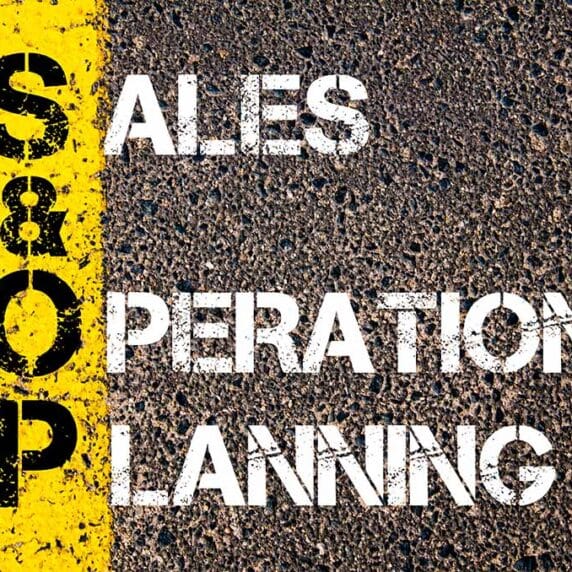Key Insights from Gartner Supply Chain Symposium/Xpo™ 2024: Rethinking the Future of Supply Chain
Last week at the Gartner Supply Chain Symposium/Xpo™ 2024 conference in Barcelona, the supply chain community gathered for one of the most anticipated events of the year. Industry leaders, innovators, and professionals came together to explore the latest trends, technologies, and strategies that are shaping the future of supply chain management. The conversations were both dynamic and thought-provoking, reflecting the complex and rapidly evolving nature of global supply chains. The dominant themes echoed the discussions at the Gartner Supply Chain Symposium/Xpo™ 2024 in Miami last month, which emphasizes the urgency of these trends across the globe.
Here are our key insights from Gartner Supply Chain Symposium/Xpo™ 2024:
AI in Supply Chain: Beyond the Hype
Artificial Intelligence (AI) remains a focal point in supply chain discussions. However, the excitement surrounding AI has led to fatigue and skepticism among supply chain professionals. Despite its potential, overemphasis on AI has caused confusion about its practical value. Many vendors struggle to articulate the specific AI technologies they use, leading to a lack of trust.
Attendees frequently questioned the reality and application of AI in supply chain operations. While there’s pressure to adopt AI solutions, this is coupled with frustration due to unclear benefits and implementation challenges. A notable use case is leveraging AI for probabilistic forecasts, which is increasingly vital as sales orders decline across various industries. The correlation between accurate forecasting and successful inventory management was a recurrent theme, emphasizing the need for reliable AI applications.
Moving Towards Best of Breed, Not Platform, Solutions
The conference highlighted a significant shift towards composable architecture. Companies are seeking targeted, best-of-breed solutions rather than comprehensive, monolithic platforms that are cumbersome and inflexible. The preference for composable architecture stems from the need to select the best tools for specific use cases, avoiding the pitfalls of average solutions and data integration issues associated with single-platform approaches.
Composable architecture is seen as essential for creating an agile and antifragile supply chain. Supply chain leaders expressed frustration with single platform solutions that hinder the integration of the most compelling modules from multiple vendors. The interest in niche, point solutions over large, complex platforms is growing, with a focus on flexibility and rapid deployment.
Sustainability: From Buzzword to Business Imperative
Sustainability has evolved beyond being a mere buzzword to become a fundamental business imperative across industries. One of the insights from Gartner Supply Chain Symposium/Xpo™ 2024 was a clear consensus on the need for companies to substantiate sustainability claims with concrete data. This includes enhancing supply chain transparency using technologies like AI to track and verify sustainability metrics. Stakeholders increasingly demand visibility from sourcing to disposal, prompting companies to explore actionable steps such as optimizing logistics for reduced carbon footprint and adopting circular economy practices.
Sustainability is not only about compliance but also a strategic advantage. Organizations integrating sustainable practices are not only meeting regulatory demands but also attracting environmentally conscious consumers and investors. As global scrutiny on sustainability intensifies, supply chain leaders are challenged to embed these principles seamlessly, driving innovation and setting new benchmarks in industry standards. Moreover, supply chain leaders increasingly see sustainability as a step towards antifragility. After all, a sustainable supply chain is an antifragile supply chain.
Decision-Centric Planning
Traditional S&OP and S&OE processes are under scrutiny. Many supply chain leaders find S&OP meetings to be time-consuming and often redundant, as decisions are made before these meetings due to the fast-paced nature of disruptions. Pia Orup Lund from Gartner discussed the concept of “desire paths” where planners deviate from formal S&OP processes, creating unofficial but practical workflows.
Gartner’s research suggests that “when faced with uncertainty exposure, organizations with dynamic decision processes are 4.9 times more likely to impact their revenue positively.” (2023 Gartner Antifragile Supply Chain Management Survey) However, many of the current tools and platforms available are not supporting these decision-centric planning (DCP) needs, as they still follow outdated S&OP models. There is a clear demand for technologies, such as ToolsGroup’s Decision Hub, that can facilitate more dynamic and responsive planning processes.
The ToolsGroup sustainability gift… “It’s NOT chocolate”
Final Thoughts
The landscape of supply chain management is constantly evolving, which is underscored by these key insights from Gartner Supply Chain Symposium/Xpo™ 2024 in Barcelona. AI’s potential, while significant, requires clearer communication and more realistic applications. The move towards composable architecture reflects the need for agility and flexibility, while sustainability is now a critical business imperative. Lastly, decision-centric planning is emerging as a necessary evolution of traditional S&OP processes. Ultimately, all four trends highlight a key need for supply chain executives to manage uncertainty more effectively in these increasingly uncertain times.
As supply chain leaders navigate these changes, the emphasis will be on adopting technologies and strategies that enhance agility, transparency, and responsiveness. The insights from this symposium provide a roadmap for rethinking and reshaping the future of supply chain management.







